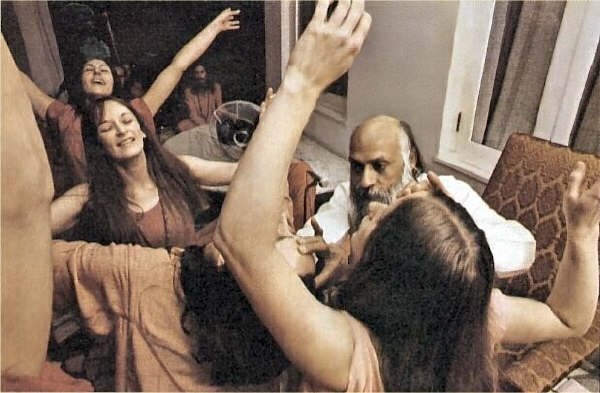Gautama the Buddha worked hard for six years in all kinds of disciplines to arrive home, to know the truth of his being, to realize the meaning of life. But he failed utterly — not because he was lacking in effort, not because he was not committed to the methods he was practicing, but because he was not meditatively in them.
His efforts were, in a way, superficial; they were not arising from his own innermost core. On the contrary, they were imposed from the outside by others — by tradition, by teachers, by scriptures.
After six years of arduous effort and frustration he realized this: "I can be transformed only when something becomes my own insight, when something comes out of my own vision. Borrowed visions won't do, borrowed methods won't help. Scriptures will make me a parrot, but they cannot make me the enlightened one."
After six years he changed his whole way of life: he started living from the within. And that became the turning point. That became the beginning of the endless journey into truth. That became the beginning of eternal joy, celebration.
It was natural. Everybody in the beginning follows others; that comes easy. You yourself don't know where to go, what to do, how to do it. You start asking the experts. And the problem is that in the spiritual inquiry there are no experts — there cannot be, because each individual is so unique that expertise is not possible.
Expertise is possible if there is no individuality. About matter you can come to conclusions — matter is predictable — but about man you cannot come to conclusions in the same way.
Something about man remains unpredictable, and that unpredictable quality is his very essence. That's what makes him man; that is his freedom.
He is not bound to the law of cause and effect; he functions under a totally different kind of law. He can behave in such a way that it would have been inconceivable for you, seeing the situation, given the situation, to imagine. If you had predicted it, your prediction would have seemed like an absurdity. But man can function outside the law of cause and effect.
Then how to help man? — how is a master supposed to help others? He helps not by giving detailed information, instructions; he helps only by indicating. He hints, he does not guide. That is one of the most essential things to be understood about Buddha: he is not a guide. He does not give you the whole map of the journey but only an indication, a vague, subtle hint. You need not follow him in all details. You can understand him and then you will have to work out your own life-style.
And I perfectly agree with him. He learned it the hard way; I have also learned it the hard way.
Listen to me — listen with an open heart. Try to understand what is being conveyed to you, but don't follow it mechanically. Let it first become an understanding in you, then follow your understanding, not my instructions. My instruction can only help you to raise your eyes towards the sky. It cannot give you a fixed pattern of life; it cannot give you a discipline but it can give you the direction.
And the difference is great: a direction is a totally different phenomenon; a description, a detailed description, makes you a slave.
Just an opening… fingers pointing to the moon are of immense help. You need not cling to the fingers, you need not worship the fingers. In fact, when you start looking at the moon you have to forget all about the fingers. You will feel grateful, but you will not be an imitator. You will be an individual in your own right. You will be a free consciousness. That is Buddha's fundamental message.
OSHO


